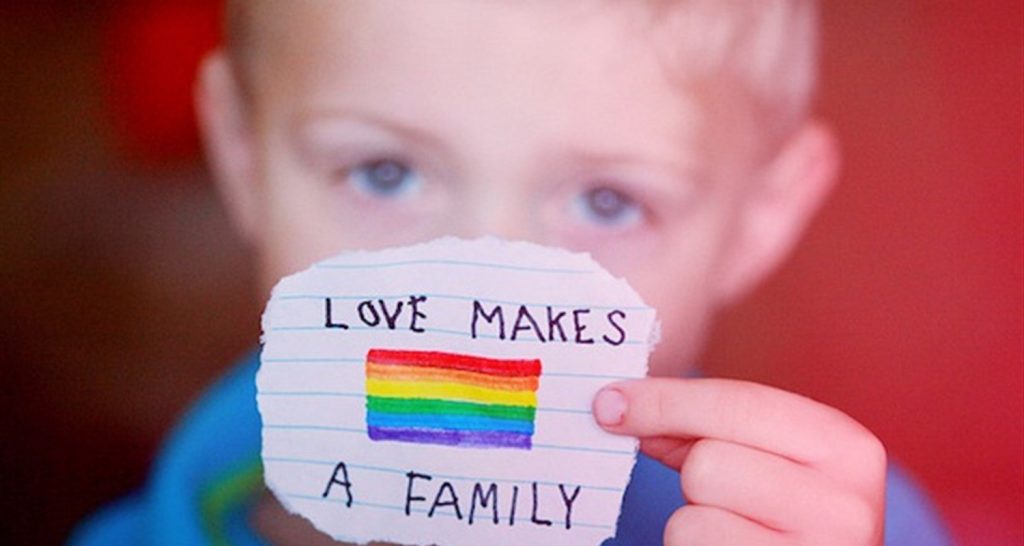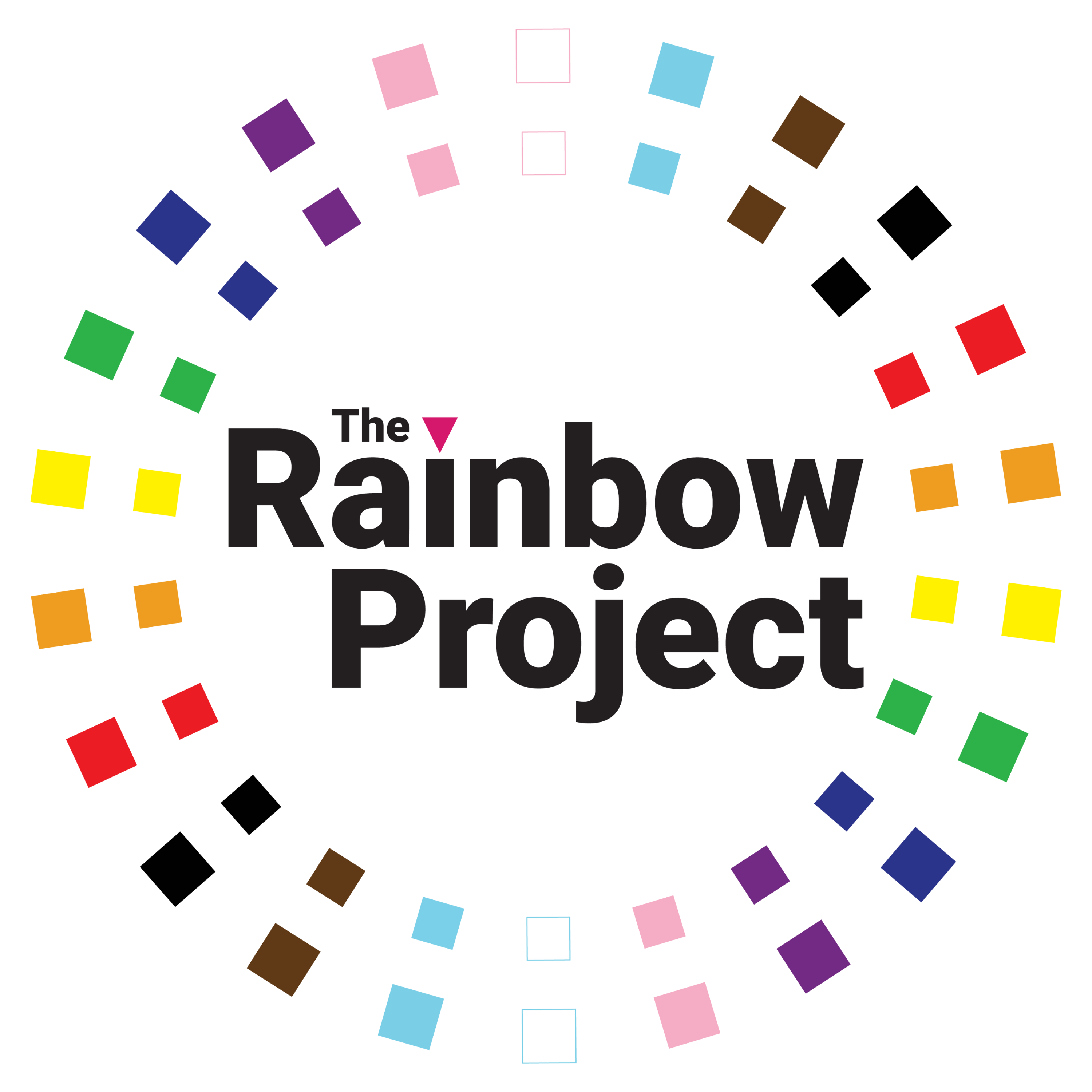
Adoption and Fostering
The Same Sex Family Project by The Rainbow Project and HEReNI
The Rainbow Project and HERe NI, operate a joint family initiative called The Same Sex Family Project which provides information and support to LGBT couples and their children.
The primary aim of this group is to allow children of LGBT parents to socialise, play and learn with other children from same sex families. We want to ensure that the children of LGBT parents grow up knowing that families come in many different ways and sizes and that their family is just the same as everybody else’s. Our group has expanded from an initial 2 couples and their children to more than 70 families attending our monthly events.
We run two events each month; our information evenings focus on practical advice, such as first aid in the home, budgeting, preparing for school etc. Whilst our meet ups are an opportunity for parents to talk with other same sex parents, as the children take part in planned activities.
There are currently 2 same sex family groups, running in Belfast and L’Derry and these groups meet at least once a month. Apart from the monthly social group meeting there are other activities throughout the year.
For more information contact Joe Walsh: familysupport@rainbow-project.org
Can I be a Foster Carer if I am LGBT+?
In short, the answer is YES!
Many LGBT people in Northern Ireland are not aware that they are able to foster, however, our ability to be considered as foster carers is underpinned by equality law. Despite the law, many LGBT people think that they can’t be carers or are concerned that agencies may not wish to work with LGBT foster carers. There are many fostering agencies who actively seek LGBT prospective carers as we are often seen as more accepting, understanding of challenges and able to see the positives in young people.
What is fostering?
Becoming a foster carer is a way of providing a family life to a child or children who are not currently able to live with their own parents. Foster carers are people who are able to offer children safe and secure homes where they feel valued and respected and their emotional, physical and social development is promoted. As a foster carer you will be investing your time and energy for the wellbeing of a child or young person.
There are a range of placements that foster carers are able to provide including
- Emergency placement is when a child(ren) or young person has had to be accommodated by the Local Authority in a crisis situation to ensure their safety and well-being. Most carers will engage in an emergency placement due to the nature of how children are brought into care.
- A Respite placement is when a foster carer provides a short stay care for a child while their usual carer takes a short break; this would usually be for a weekend or a week long period. Sometimes a child can stay with a regular respite carer who they come familiar with.
- A Short stay placement is when a child requires support on a short term basis, they will be placed with a short term foster carer for a matter of days or months. This is usually an interim arrangement until the child or young person can return to their intended carers or until a suitable long term placement is made.
- Long term. Sometimes it can be months or years before a child can return to his or her intended carers. There are times when a child or young person is not able to return to their intended carers. In these cases a long term placement is needed to ensure their safety and well-being. Children in placements need foster carers who can provide safety and stability to children on a long term basis, while supporting their relationships with their intended family.
How do I become a foster carer?
Becoming a foster carer is a decision that requires careful consideration, so first of all it is important to do your research! It is also very important that if you are exploring becoming foster carer that you chose the right agency for you. Most foster agencies have their own websites and/or Facebook pages so it would be a good start to look at these. Ask around, if you know any foster carers ask them about their experiences of good agencies around Northern Ireland. If you are LGBT, look into the agency’s reputation, values and policies in relation to LGBT issues. Make sure that you feel the agency is one that shares your values. When you contact a fostering agency they will usually do an informal assessment over the phone to discuss your eligibility and if they feel you meet the criteria, they will arrange a home visit with you where they will give you information about becoming a foster carer so you are able to make an informed decision about whether it is right for you and/or your family.
As part of the assessment, the agency will consider the following,
- Personal and employer references.
- Your ability to work with them as part of a professional team.
- Your health, background and lifestyle.
- Your ability to provide a caring and nurturing environment, including an assessment of your home.
- Your skills to care for a child(ren) or what skills you can bring to a child’s life.
- Your attitude and personality, including any experience of parenting or caring for children
The assessment can take anywhere from 3 months to 6 months. When your assessment is complete the assessor will usually share the assessment with you to ensure all of the information is accurate. They will then present this to a foster panel that will ratify you as a foster carer for the agency.
Myth busting
- You do not have to be heterosexual to be able to become a foster carer
- You can be male or female to become a foster carer.
- You do not have to be cisgender to become a foster carer
- You do not have to be in a relationship to become a foster carer, you can be single, cohabiting or married.
- You can be a tenant or a home owner to become a foster carer.
- The usual age to be eligible to become a foster carer is 21 years.
- Having a criminal record won’t necessarily disqualify someone from becoming a foster carer; however, applicants with an offence against a child or any violent crime are unlikely to be selected. It is very important that you are upfront and honest about any cautions, reprimands or convictions that may impact on your assessment.
Useful contacts:
If you are interested in becoming a foster carer, below is a list of available agencies that you are able to contact to make enquires.
NI Direct, Government Services: www.nidirect.gov.uk/articles/becoming-fosterkinship-foster-carer
Kinder Care Fostering, 028 90 020 247 http://kindercareni.co.uk/lgbt-fostering/
Health and Social Care Trust Tel: (028) 9504 0057 http://www.adoptionandfostercare.hscni.net/
Foster Care Associates: 0800 434 6000 https://www.thefca.co.uk/regions/northern-ireland/
Action for Children (Northern Ireland) Phone: 028 9046 0500, Website: http://www.actionforchildren.org.uk
What is adoption?
When a child is not able to able to live with their intended carers and there are no plans to reunify the carers and the child, adoption is often used as a way to ensure a child’s needs can be met on a long term basis and place them with their ‘Forever family’. Adoption is a permanent plan for a child and is the only time full legal rights and parental responsibilities can be given to carers that are not the child’s birth parents. This means that the child’s intended carers lose all legal rights to the child and usually direct contact with the child (which is called a closed adoption). Sometimes adoptive parents will consent to an open adoption which allows a small amount of direct contact between a child’s birth family and the child.
When a child is adopted, they are given the same legal rights to their adopted family that a child born into that family would have, this is done by way of an Adoption Order which is granted by the family courts.
Adoptions in the United Kingdom are not reversible.
Can I apply to adopt if I am LGBT?
Anyone can apply to adopt a child whether you are straight, gay, lesbian, bisexual and/or transgender. You can apply to adopt as a single person or if you are married or in a relationship. LGBT people go through the same assessment process as non-LGBT people.
It is very important that if you are considering adoption that you do your research on Adoption agencies within Northern Ireland and that you choose the right agency for you.
Ask around, if you know any adopters or foster carers ask them about their experiences of good agencies around Northern Ireland. If you are LGBT, look into the agencies reputation, values and policies in relation to LGBT issues. Make sure that you feel the agency is one that shares your values.
Some things to consider:
- If you want to adopt a children you must be over the age of 21 (there is no upper age limit)
- You do not have to be married or in a relationship to adopt a child
- You must not be going through fertility treatment
- You can still adopt if you have your own children
- You do not have to own your home to adopt a child
- You do not have to be in full time employment to adopt a child.
- Having a criminal record won’t necessarily disqualify someone from becoming an adopter. However, applicants with an offence against a child or any violent crime are unlikely to be selected. Your assessor will do a full Access NI check and discuss any issues with you as part of your assessment. It is very important that you are upfront and honest about any cautions, reprimands or convictions that may impact on your assessment.
- A health assessment will be undertaken as part of the adoption assessment, having a disability does not necessarily disqualify you from adopting and will be discussed as part of the assessment.
- Being a smoker will most likely disqualify you as a prospective adopter.
How long does it take?
When you contact an adoption agency they will usually do an informal assessment over the phone to discuss your eligibility and if they feel you meet the criteria, they will arrange a home visit with you where they will give you information about becoming an adopter so you are able to make an informed decision about whether it is right for you and/or your family.
The adoption assessment usually takes about 6 months; following this your assessment will be shared with you by your social worker (assessor) to make sure that it is accurate. It is then presented to the adoption panel that will ratify you as a prospective adopter.
An adoption panel is a group of professionals who consider prospective adopters’ assessments and make recommendations to the agency as to whether they think you are suitable to adopt a child (or children).
You will be asked to attend panel along with your assessing social worker so you are able to answer any questions the panel may have about your assessment.
It is important to remember that there is no standard waiting time for you to be matched with a child, you can wait anywhere from weeks to months to years.
If you are interested in adopting a child, there are some useful links below:
NI Direct website, for all the Trusts: 028) 9504 0057
www.adoptionandfostercare.hscni.net
Action for Children: 0845 355 5533 ask.us@actionforchildren.org.uk
